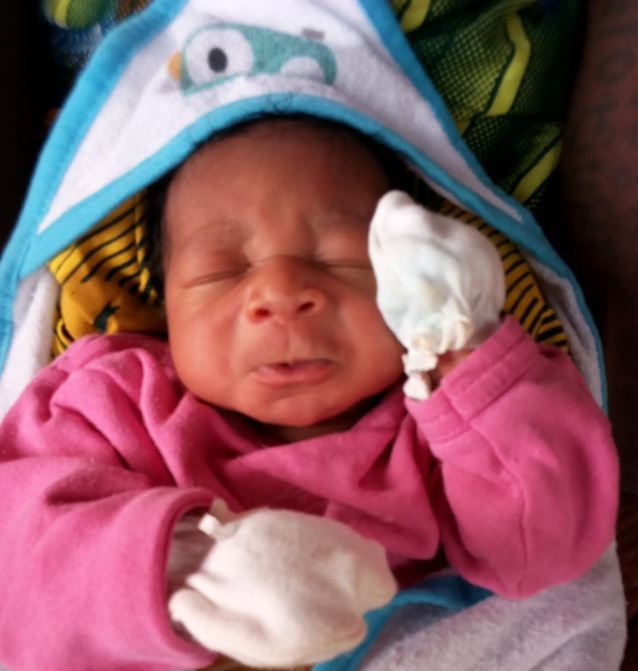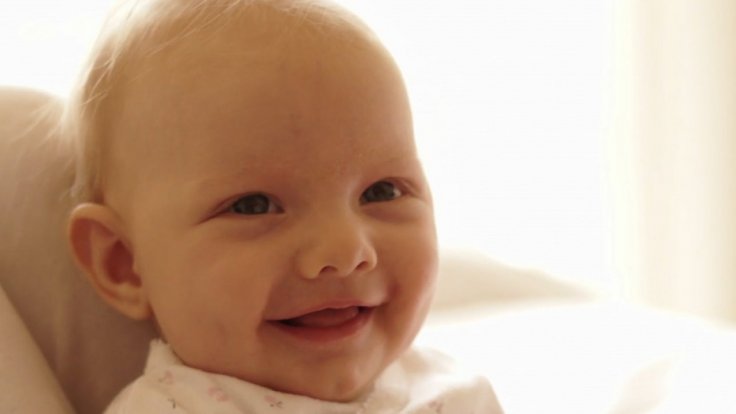In what can serve as an inexpensive and easily accessible method of diagnosis of jaundice in newborn infants, a pilot study suggests that a smartphone application can help users make the prediction using only pictures of the eyes captured on their smartphones.
According to the study by researchers from the University College London (UCL) and University College Hospital (UCLH), a new method of screening for jaundice– which quantifies the yellowness of the eyes using images clicked with a smartphone camera—was found to be as accurate, effective and inexpensive compared to screening devices used in the United Kingdom to detect severe cases of jaundice.
This method could be of utmost significance in remote and poor countries in parts of Asia and Africa that lack sophisticated jaundice screening equipment, and report nearly 75 percent of infant deaths caused by jaundice worldwide. "Given that smartphones are common even in poor and remote parts of the world, being able to use them to screen for jaundice would have a significant impact," said Felix Outlaw, first author of the study.

Jaundice in newborn babies
A person is said to suffer from jaundice when Bilirubin—a substance found in bile—accumulates excessively in the body. It causes the yellowing of the eyes and the skin. Most cases of jaundice in newborn babies are harmless. However, in extremes cases, the brains of the newborns can be affected due to the entry of a neurotoxic variant of bilirubin. This can lead to damaging disabilities such as developmental delays, loss of hearing and neurological disorders such as athetoid cerebral palsy.
It is important to note that complications arising from jaundice become serious only several days after birth—when the mother and child are at home after being discharged. Blood tests are administered to measure the concentration of bilirubin in the blood of infants found to be at risk when they are at the hospital. However, it cannot account for the possible future development of the condition.
Usually, the diagnosis made by nurses and midwives rely on visual examination and may not be reliable especially among newborns of darker skin persuasion explains Dr. Terence Leung, senior author of the study.

Smartphone pictures to measure yellowness of the eyes
Using smartphones, pictures of the eyes of 37 infants—who were referred for blood tests to measure the levels of bilirubin—were taken. Distortions caused by background light were removed. Next, the yellowness of the eyes was quantified to estimate the bilirubin level in the blood.
The predictions arrived at were not only accurate but showed a success rate equivalent to transcutaneous bilirubinometers, which are expensive devices recommended to midwives in the UK for use.

Stressing on the commercial viability of the method, Outlaw said, "Our screening method would require no special equipment apart from a smartphone and is a tenth of the cost of commercial devices used in the UK."
A larger trial in Africa
With the findings of the pilot study showing promise, the method is being tested in a larger trial with over 500 infants in the African nation of Ghana. Nearly 114,000 newborn deaths are caused every year by jaundice, with an additional 178,000 cases of disabilities reported across the world. Unfortunately, three-quarters of deaths are reported in poor and lower-income countries in sub-Saharan Africa and South Asia, in spite of several cases being treatable.
Therefore, the trial is of global importance when it comes to saving the lives of infants across the world. "Our smartphone-based method provides a more robust assessment, ensuring serious cases do not go unnoticed. While we await the evidence of a larger trial, we believe that this method, used as an app, could help to prevent the deaths of newborn babies due to severe jaundice worldwide," said Leung.








